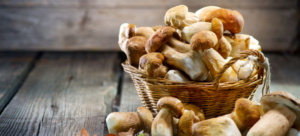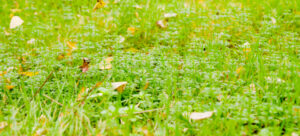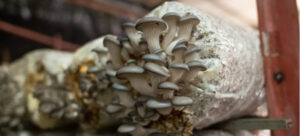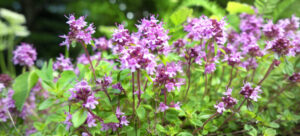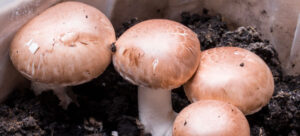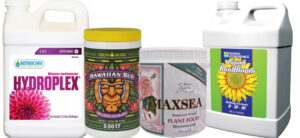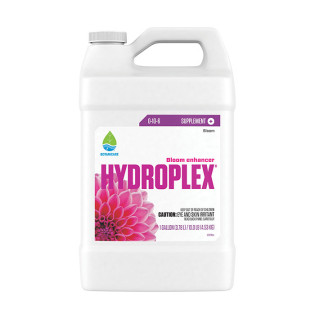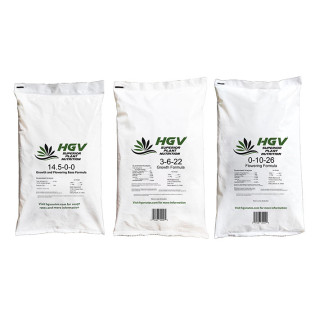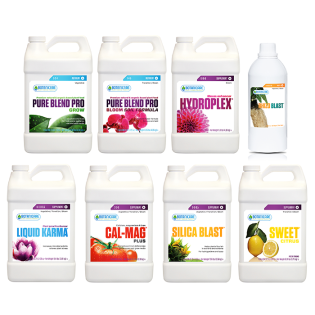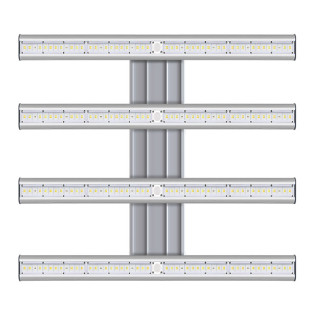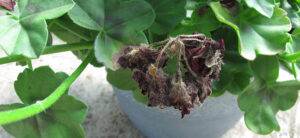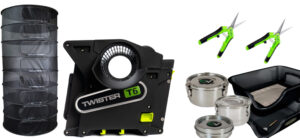
If you are noticing your blooms are very light and airy, you can try and increase flower density with a bud hardener!
If you’re a hobby grower cultivating for personal use, light, airy buds are super disappointing. Plus, they’re a hassle to try and trim.
From a commercial grower’s standpoint, growing dense buds is a must. Nobody wants to send a light, airy product to market. It's all about bag appeal!
There are a few factors that affect the density of your buds, but a lot of it comes down to genetics.
If you have your grow dialed in and use top-shelf genetics but still can't seem to produce the dense buds you're after, a bud hardener is your best bet.
At the end of this article, we’ll share some of the best products you can use to grow fat, dense colas this season!
What Factors Affect Flower Density?
We already briefly touched on it, but the genetics you are growing are the largest determinant in what you grow.
Why Genetics Play The Biggest Role In Bud Density

We constantly talk about growing plants in a way that maximizes their genetic potential. What we mean by this is pushing the limits of that specific seed or clone. There is only so much you as a grower can do.
If you start with old, weak seeds or clones, you’ll end up with a weak harvest - even if you use the best grow lights, the best nutrients, and dial in your VPD and supplement with CO2. Genetics are usually going to be the limiting factor.
But, there are a few things other than genetics than can affect your harvest. These include nutrition, lighting, and mistakes by the grower throughout the cycle.
Plant Nutrition: Feeding poor quality nutrients and improper ratios

Another reason you may grow lackluster buds is the nutrients you feed your plants. It goes without saying that using poor quality nutrients or fertilizer will affect your harvest in terms of quality and quantity.
But, feeding improper nutrient ratios can play a role in this as well. If you overfeed nitrogen, you’re going to end up with lanky plants with thin, airy buds.
We recommend you check out our article on the ideal nutrient ratios across different growth stages. It will explain what nutrients your plants need the most, and at which stages of growth.
Once you have an understanding of that, you should read our yearly review of the best plant nutrients. Grabbing a nutrient package from that list will set you up for success from a plant nutrition standpoint
Use Powerful Grow Lights If You Want Impressive Buds

There is a pretty direct correlation between the intensity of your grow light and the growth your plants show.
If you use weak grow lights, your plants will never reach their genetic potential. This is because the light can’t penetrate the canopy, and only the very top of your plant will get light energy.
The result of this is short colas up top, with popcorn nugs throughout the middle and bottom half of the plant.
Some level of plant training can help you increase the penetration of your grow light, but just invest in some powerful LED, CMH, or HPS grow lights if you are concerned about the quality and density of your harvest.
If you are looking for specific recommendations, our yearly review of the best LED grow lights will have an option to fit your grow room and budget.
What Mistakes Do Growers Make Than Can Affect Bud Density?
Aside from using poor quality genetics, nutrients, and lighting, there are some common mistakes new growers make that may affect the density of their buds.
Too Much Plant Training
If you are even a somewhat serious grower, you likely do some degree of plant training - even if its just pruning to increase yield.
But, too much of a good thing can be bad. And plant training is no different.
If you top your plant too much, or do any other form of training that seeks to increase bud sites, each cola will be less impressive.
The reason for this goes back to genetic potential. Each plant you grow has a limit on how much it can yield. By topping your plant, you are spreading that yield across each shoot of growth.
So in theory, you’ll yield about the same with 4 huge colas as you would with 16 colas - the difference is, however, those 16 colas will be tiny! So don’t get carried away with the training.
Starting To Flower Before Your Plant Is Ready
Another mistake growers make is flipping to flower too early. If your plant is still relatively small when you flip from 18/6 to 12/12, it won’t be able to support thick, dense buds.
So give your plants time to grow thick branches capable of supporting huge colas, and they will reward you!
Not Defoliating During Flower
Just like too much plant training can be detrimental to your harvest, not enough training is too. In this case, we’re talking about defoliation.
This is where you remove big fan leaves throughout your plant.
This style of training does a few things: increase air flow throughout the plant, push the plants energy away from growing leaves to growing buds, and most importantly - allows more light in.
By letting more light through your canopy, the middle part of your plant will produce bigger buds, rather than airy popcorn nugs.
What Is A Bud Hardener?
A bud hardener is an additive you can use at the end of the flower cycle to tighten up your flowers and pack on weight.
They are typically used in the final 3 weeks or so of the grow cycle and contain a mix of macronutrients, micronutrients, minerals, essential oils, etc.
They help reduce the stress of your plant, while not only increasing density but terpene and flavonoid production as well!
Should I Use A Bud Hardener?
A lot of newer growers are unhappy with their yields and quality, so they think the solution is to start feeding all kinds of additives.
The reality is, no bud hardener will remedy a grow room or garden that implements poor genetics, lighting, environmental controls, nutrition, etc.
You need to get the basics right first. If you are doing everything else right, then try adding in a bud hardener to pack on extra weight to your flowers in the final few weeks.
What Is The Best Bud Hardener?
Now, even if you follow the advice we outlined above, you can still drastically increase your flower density by using a bud hardener.
These supplements contain the nutrients and minerals your plant needs in the final weeks of its life. Here are a few of our favorites.
General Hydroponic KoolBloom

Available as Liquid KoolBloom or Dry KoolBloom, this additive is widely regarded as the best bud hardener out there.
General Hydroponics is a super reputable brand in the horticulture industry, and this product does wonders for indoor and outdoor growers alike when it comes to finishing flowering.
This bulking agent goes above and beyond what you’d expect a bloom booster to do. It’s chock-full of stress reducing vitamins, nutrient transporting acids, and helps promote terpene and flavonoid production.
We recommend using it in the final 2-3 weeks of flower to facilitate ripening and packing on the extra weight on your flowers.
Botanicare Hydroplex Bloom Enhancer

Hydroplex is another great additive to help push your plant to its genetic limits in terms of quality and quantity - meaning the weight of your buds.
To help your plants handle the demands and stress of the flowering cycle, this additive is filled with a broad range of amino acids, trace minerals, and essential vitamins, along with the P’s and K’s.
All of these components work together to create large, denser buds while amplifying chlorophyll, terpenes, sugars, and more.
Grow More Hawaiian Bud

Hawaiian Bud provides your plants with ample phosphate and potash to ripen your buds to perfection and increase density in the late flowering cycle.
It also contains 6 trace elements along with humic acid and kelp extract, promoting heavier weight.
This additive features the ideal nutrient ratio to mobilize essential oils, leading to more resinous, aromatic buds as well!
Advanced Nutrients Big Bud Liquid

A convenient liquid fertilizer that delivers a unique suite of bud potentiator ingredients to your flowering plants. It's called Big Bud.
Big Bud is the legendary liquid fertilizer bloom booster engineered to provide optimal conditions that increase plant growth and deliver robust flowers to you. This formula provides the nutrients your plants crave during their bloom cycle.
Big Bud’s optimal ratios of phosphorus and potassium are crucial for bloom phase growth and photosynthesis.
This best-selling bloom booster has helped thousands of growers maximize the genetic potential of their crops. And now, you too can…
Fox Farm Beastie Bloomz

The final additive we want to mention is Beastie Bloomz.
It features a potent dose of phosphorus and potassium, along with a blend of extra strength micronutrients and other elements your plants need to meet their genetic potential.
Beastie Bloomz is designed to create unbelievable internal bud density, resulting in plants that only produce the type of flower you want - no airy popcorn nugs.
To reap the benefits of this additive to the fullest extent, start feeding in the final 2-3 weeks of flower and watch your flowers fatten up!
Final Thoughts On How To Increase Flower Density With A Bud Hardener
These five additives are all great bud hardener options to increase the density of your flower. But remember, no supplement can fix a poor garden or grow room.
If you don’t have your genetics, lighting, and environment dialed in, don’t waste your time or money on additives.
First, improve conditions for your plant. Only then will you get the benefits of a bud hardener!
